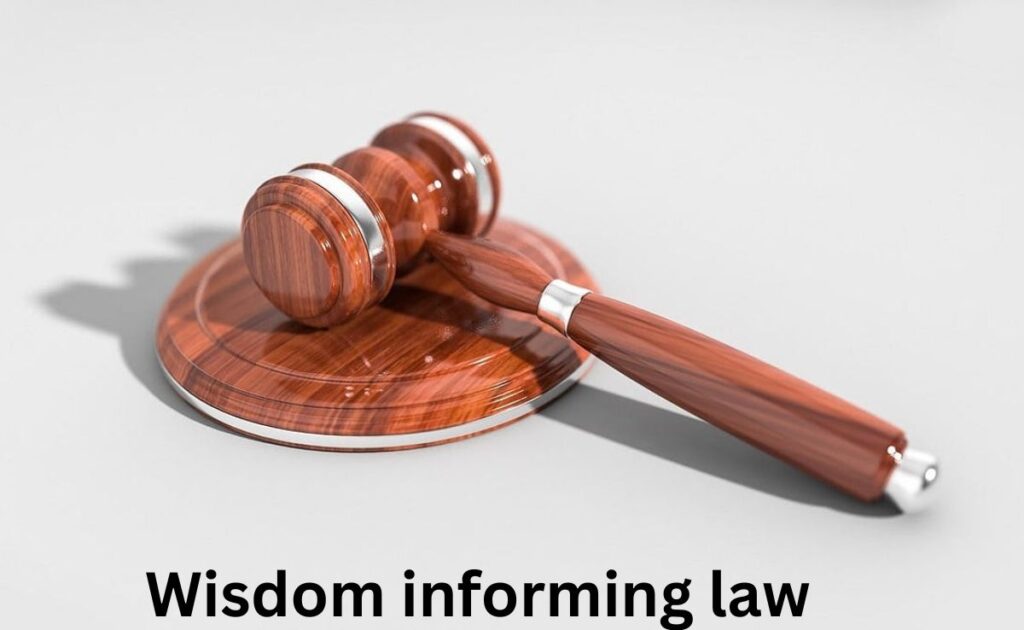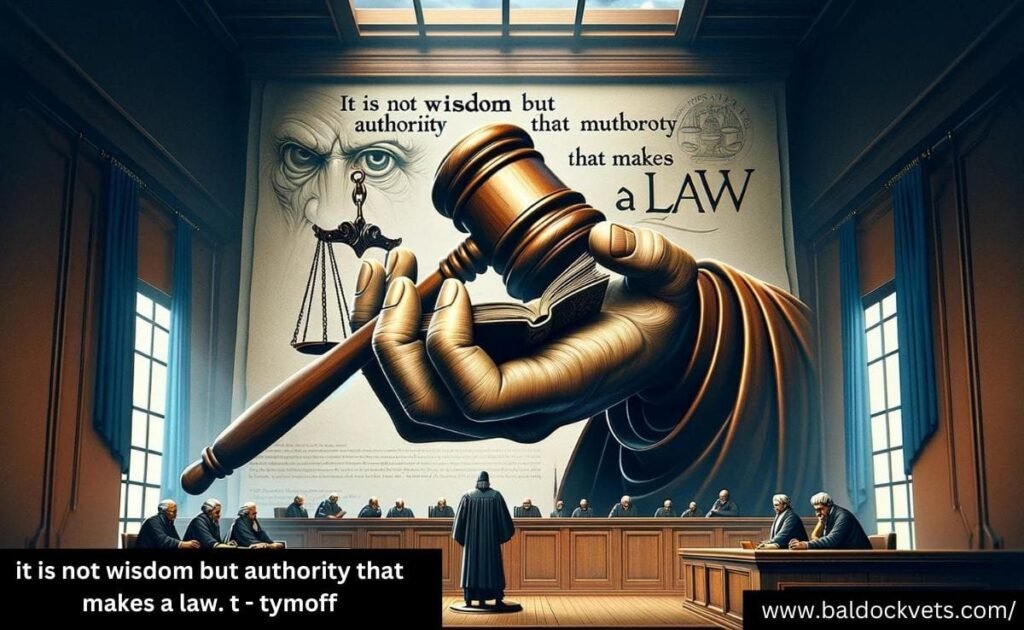The quotation “it is not wisdom but authority that makes a law. t – tymoff” is generally attributed to Edward gibbon , not to a philosopher named T. Tymoff. Edward gibbon is one of the famous author which has written a monumental work The history of the decline and fall of roman empire
Introduction
The provocative statement, “it is not wisdom but authority that makes a law. t – tymoff,” challenges customary points of view on the beginnings of lawful systems. In this investigation, we dig into the ramifications of this assertion, taking apart the connection between power, astuteness, and the complicated course of lawmaking.
What makes a law? An authority or wisdom
Edward Gibbon is a British historian who has exciting thoughts on the relationship between authority and wisdom in forming a law. And one of the famous quotes he has said “ it is not wisdom but authority that makes a law. t – tymoff.
Thus this statement brings a huge debate . Does authority make the law but why can wisdom not do that ? Many of the people debate on this and give their point of view in this particular quote. Let’s see what the gibbon’ s thought was on this subject.
Authority vs Wisdom
Gibbon said that there is a logic behind the statement. As not the guideline, be able to make law. It’s only authority gives you that power to make legislative law and punish the person who breaks the law. And the government has power as they have got the authority to make and change laws. As laws cannot be enforce by popularity, guidelines , fairness or ethics . Only the authority establishes and promulgates the rule that gives it an actual legal standing.
It shows a huge difference between them. As authority is something sensible and logical which can form a reasonable rule. While wisdom shows strength and speaks of its own. But the authority is give to the person who has an official degree and has the ability to impose laws on those who break rules.
Some examples from History
The gibbon’ perspective has got a support from the examples from history and some of them are list below:
- Slavery laws from past eras: All we know that in past time there was a slavery law which was impose on the people which was very cruel. This shows the authority of that time upheld it.
- Some Unpopular regimes : Authoritarian rulers were use to pass laws against political dissent, protests and free press.
- Social issue laws: There were debates over the legality of drug use and abortion of children etc. It often used to have clashing views . But the authority stands it all.
- Debates on Taxation and regulatory legality : In the past eras the legal authority used to make new laws and imposed unusual tax on poor people which was not right. The poor ones have to pay a huge tax, rather than the richer ones.
All of these show how the Authority can implement the rules of conduct with the full backing of law, whether it is reasonable or not according to various ethical , social or opinions based on standards of wisdom. Thus, the Formal institutional Authority appears integral to the enforceable legal status and power of any rule or social guideline, according to Gibbon view.
Wisdom informing law

Gibbon mainly focused on authority to make laws but he suggests that wisdom can play no role. Public suggestions and their perspective is also important while making any new laws . Laws are made for the good of the public so it is important to see their social values and other things . Thus it would help the authorities to craft laws . So that most citizens would find that the law is reasonable and they will respect it. As authorities generally keep the balance between different perspectives and promote social welfare. For example, if you make law by getting suggestions from legal authorities and community representatives then it would be very helpful to make a good law which will be respect by all. But if not, then there would be huge criticism across the country.
So, Authority is important to make legal laws but wisdom also plays an important role in guiding the government structures and their methods.
Some other philosophers views on the relationship between authority and wisdom
- Aristotle: He has seen the importance of wisdom/reason and political Authority in crafting good laws.
- Plato: Plato has discuss how a society needs laws which are mak by it is not wisdom but authority that makes a law. t – tymoff.
- Thomas Aquinas: He is a theologian and philosopher. Thus, Aquinas believe that justice can done and laws should done by divine and moral wisdom over arbitrary Authority.
- Jeremy Bentham: As a founder of utilitarianism, Bentham found that laws should aim to achieve the happiness and utility of numerous people.
- Jean-Jacques Rousseau: In the Social Contract,he examined how Authority derives from a social contract respecting both popular sovereignty and laws serving the public good.
- Immanuel Kant: He work on the philosophy of law and examine how just laws should be align with universal ethics and facts rather than authority alone.
Who said it is not wisdom but authority that makes a law?
Although Gibbon, not Tymoff, stressed the significance of authority as the major driver behind codified law, he didn’t discount the importance of wisdom. Taking into account parts such as disadvantages, facts, ethics, and public point-of-view can assist authorities in creating laws that effectively address problems in a manner that many citizens will get affordable and worthy respect, even if they might not completely agree. Authorities majorly strive to balance several viewpoints and advance the common product. Getting wisdom aids in this endeavor. For instance, working on input from legal experts and community representatives, along with data analysis, helps refine policies into fair and enforceable rules that the majority will join with. This is given by Gimon’s Philosophy.
Conclusion
In the end, Gibbon’s perspective shows how the laws are define and what are the roles of it is not wisdom but authority that makes a law. t – tymoff and other factors of wisdom such as facts, ethics and popular will. There are many answers to these questions. Thus, debate on authority and wisdom in forming law will remain discussed and it will change as the time passes by.
Frequently Asked Questions
What is the role of Wisdom in Law making?
What is the relation between wisdom and authority?
How can we learn about law and philosophy?
Also Read About: Unveiling the Life of Sakshi Dhoni: A Closer Look at Her Journey


